Rewilding Spain has signed its first agreement to protect an old-growth forest in the Iberian Highlands. A change in forest management will support natural regeneration, delivering benefits to both nature and people. With other owners of old-growth forests interested in signing similar agreements, there is significant scaling-up potential.

The importance of old-growth forests
Letting forests naturally regenerate is one of the most practical, immediate, and cost-effective ways of addressing our ecological and climate emergencies. As vital ecosystems that support millions of animals and plants, mature natural forests – or old-growth forests – lock up and store huge amounts of carbon. They are more resilient to climate change and disease than young tree plantations, with their diverse mix of native species allowing them to better adapt to a far wider range of conditions. And they provide an array of other benefits to people, such as flood protection, erosion prevention, clean air and water, pollination, and support for the development of nature-based business.
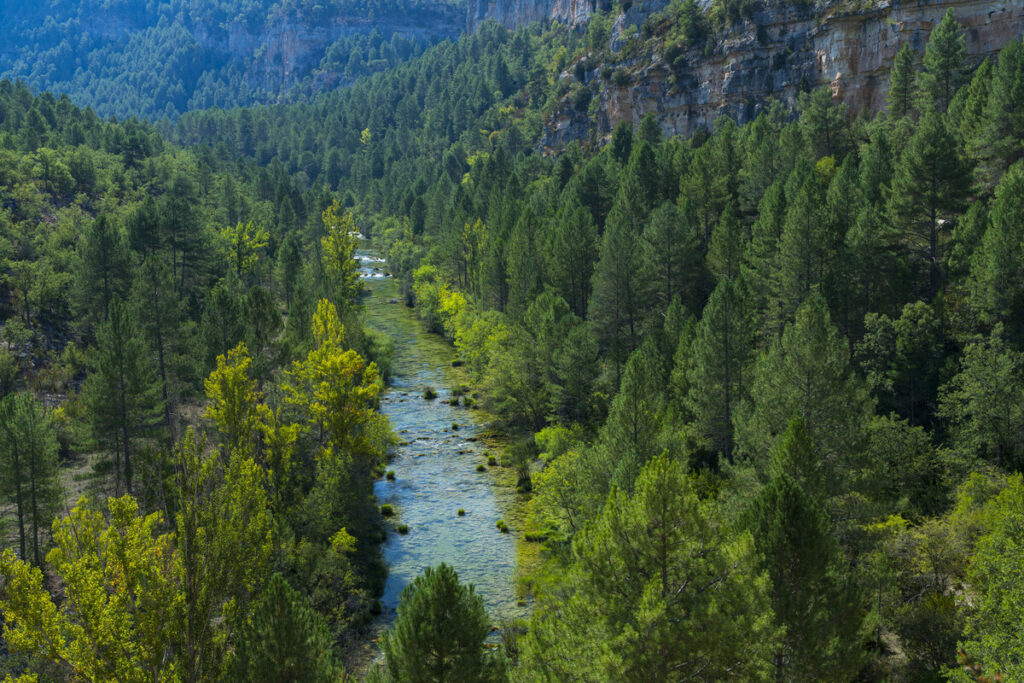
Pioneering agreement
In the Iberian Highlands, Rewilding Spain is exploring opportunities with several municipalities and private landowners to protect old-growth forests, which are dotted across the rewilding landscape. In 2023, the team launched a sustainable forest management support service, to help municipalities based in the Molina-Alto Tajo, Serranía de Cuenca, and Sierra de Albarracín areas generate income through activities such as resin extraction, sustainable hunting, and mycology (mushroom picking).
In an exciting step forward, Rewilding Spain team have just signed their first agreement to preserve a 264-hectare old-growth forest in the Serranía Alta de Cuenca region, which is owned by Vega del Codorno town council and local residents. The agreement involves the creation of a reserve in which no trees will be cut for the next 30 years, allowing the forest to naturally regenerate. Hunting, grazing, and recreational use will continue in a sustainable way.
To compensate for the loss of income from timber harvesting, Rewilding Spain will pay 8,000 euros every year to the council, and assume responsibility for trading the carbon sequestration rights. If this trading generates more than 8,000 euros a year, the excess will be given to the municipality. If it generates less, the agreed sum will still be paid.
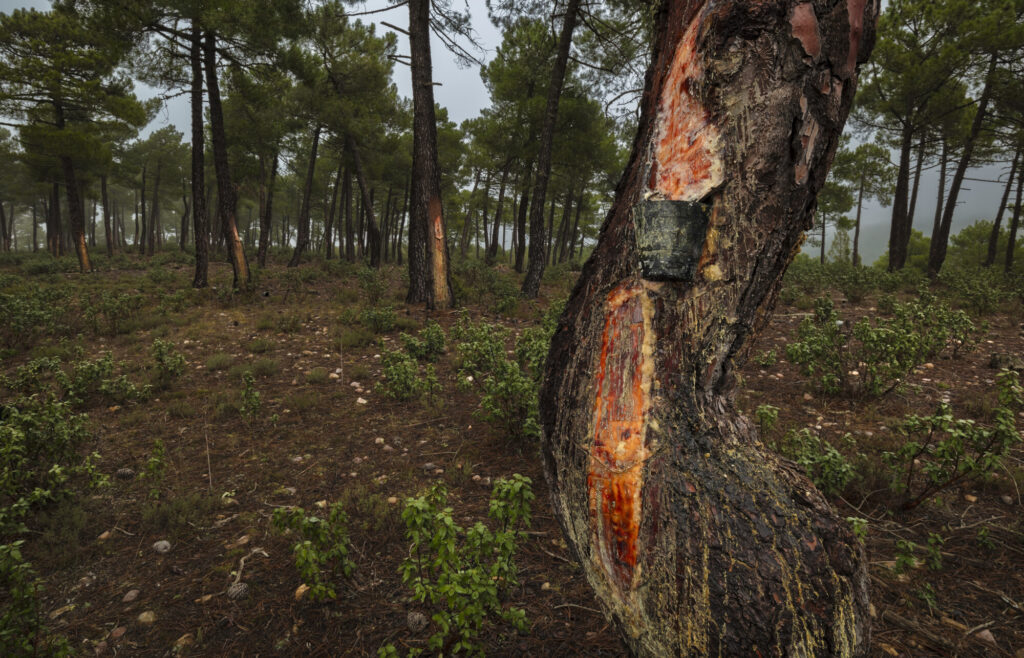
Rewilding potential
The Vega del Codorno forest is mostly comprised of red pine, black pine, European box, juniper, and common hawthorn. It is well-known for its bountiful supply of mushrooms, and is regularly visited by local residents and visitors looking to pick them.
The forest is already relatively healthy and is home to a wide range of animals and plants.
Stopping timber extraction will allow it to regenerate, with natural processes such as decomposition playing more of an influential role.
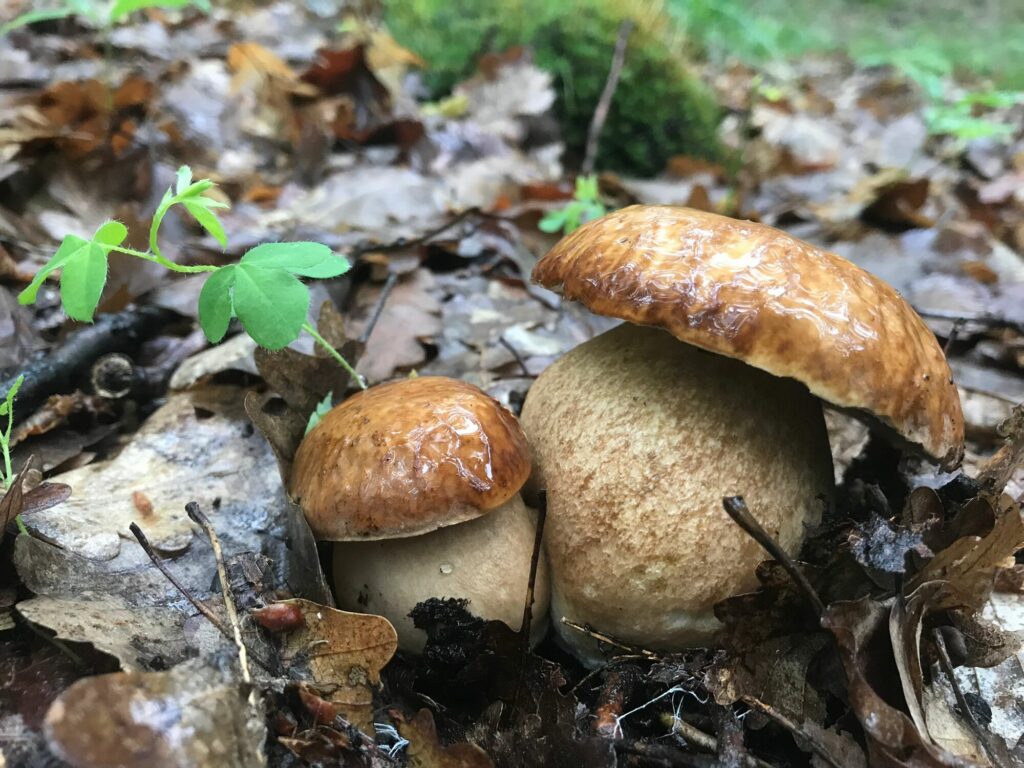
Vital income for local communities
The use of public forests is one of few sources of revenue for many rural municipalities in the Iberian Highlands. Sustainable forest management – involving low-impact forestry, as well as mycological resources, sustainable hunting, pastures, and resin – is an opportunity for public and private landowners to offer new products and services, or enhance those that they already offer.
In providing a financial incentive, such management not only enhances the natural value of forests, but can help to keep people in the landscape, and even attract new residents. This is particularly important in an area characterised by rural depopulation and economic stagnation. By attracting more visitors and enabling the development of a thriving nature-based economy, forest regeneration and rewilding at scale can encourage and enable people to return to and revitalise the Iberian Highland landscape.
Following the signing of the agreement, Rodrigo Molina, the mayor of Vega del Codorno, was keen to emphasise its economic benefits.
“When visitors get to know that we have an old-growth forest here, it will benefit local tourism businesses. Tourism is a very important source of revenue for us.”
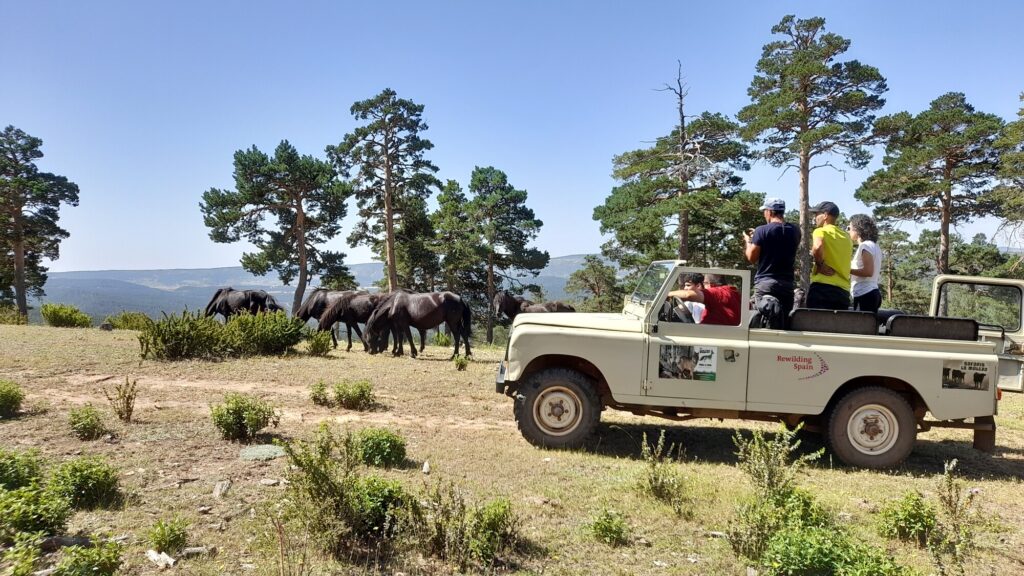
Scaling up
Moving forwards, there are significant opportunities for signing similar agreements with other municipalities and landowners. The new agreement, which has been widely covered in regional Spanish media, has sparked a lot of interest.
“This is the first agreement signed by Rewilding Spain enabling people in the Iberian Highlands to benefit from sustainable forest management and the recovery of nature and natural processes,” says Rewilding Spain’s general manager, Mara Zamora, who signed the agreement with Rodrigo Molina. It’s a new path that we are looking forward to following with other stakeholders in the landscape.”
“It is important for us that we can inspire other municipalities and landowners to follow in our footsteps,” adds Rodrigo Molina. “We are more than happy to explain the process involved in signing the agreement, and our motivation behind it.”
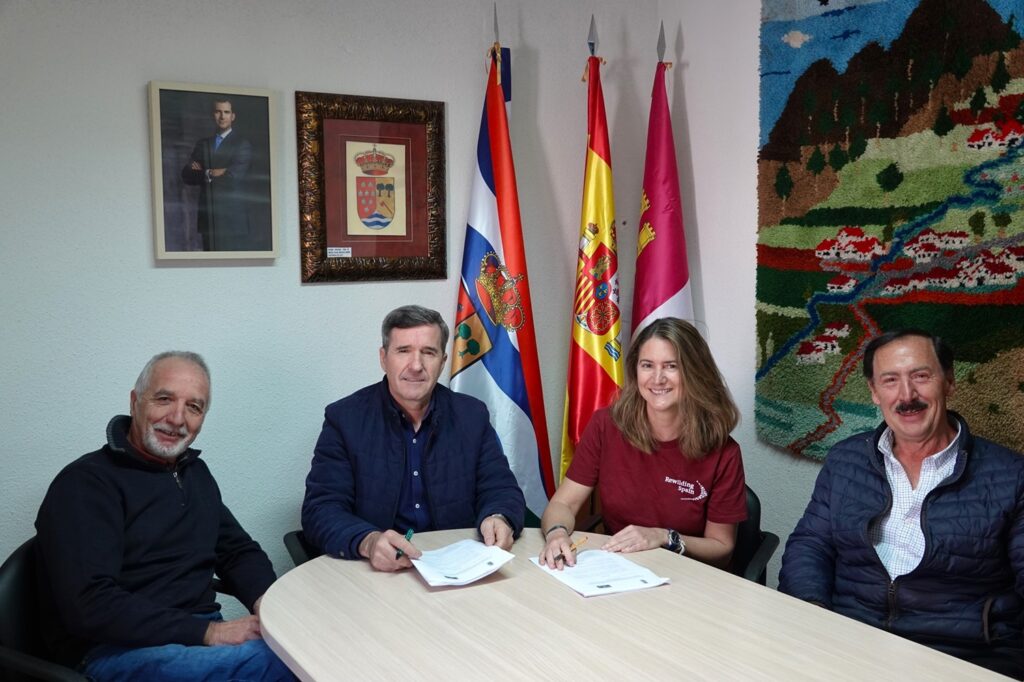
Support for forest regeneration
Rewilding Europe aims to create more space for wild nature in Europe, by allowing natural processes to shape our landscapes, promoting wildlife comeback, and developing nature-based local economies. We are already letting natural forests regenerate of their own accord in many of our landscapes, aided by herds of reintroduced or restocked free-roaming herbivores, such as European bison, semi-wild horses, and Tauros.
Rewilding Europe Capital, our enterprise loan facility, provides loans to forest management businesses across Europe that generate positive rewilding and environmental impact, based on transforming forests used for intensive production into more natural forests. For more information, please contact Rewilding Europe’s Conservation Finance Expert Daniel Veríssimo.
